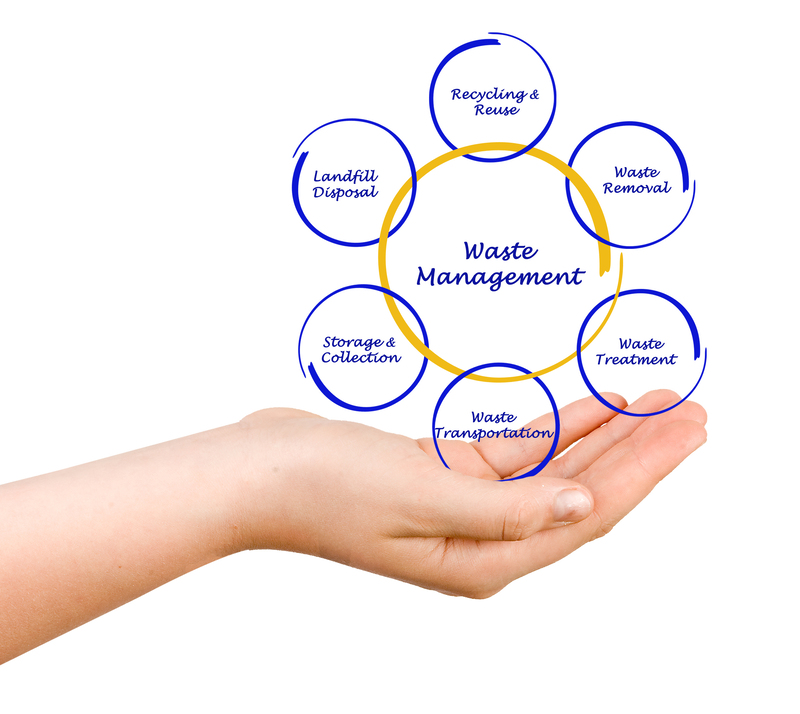Recycling's Environmental Perks
Posted on 09/02/2025
Recycling is a fundamental practice for maintaining the health and sustainability of our environment. The process of converting waste materials into new products has a myriad of benefits that extend far beyond simply reducing the amount of trash that ends up in landfills. In this article, we will explore the environmental perks of recycling, examining its impact on energy consumption, natural resource preservation, pollution reduction, and climate change mitigation.
Reduced Energy Consumption
Recycling significantly reduces energy consumption across various industries. Manufacturing products from recycled materials generally requires much less energy than producing the same items from raw materials. For instance, producing aluminum from recycled materials consumes 95% less energy than making it from bauxite ore. Similarly, recycling paper uses 60% less energy compared to producing paper from virgin wood pulp. This decrease in energy demand translates into lower greenhouse gas emissions, making recycling a win-win for both manufacturers and the planet.

Preservation of Natural Resources
Recycling aids in preserving our planet's finite natural resources. Mining, logging, and drilling for raw materials are not only energy-intensive but also disrupt ecosystems and deplete resources at an alarming rate. By recycling, we minimize the need to extract these raw materials, thereby conserving essential natural resources like timber, water, and minerals. For example, every ton of recycled paper saves approximately 17 trees and 7,000 gallons of water. By committing to recycling, we ensure that future generations also have access to these vital natural resources.
Reduction of Pollution
Pollution is a pressing global issue, and recycling plays a crucial role in mitigating its impact. The process of extracting and processing raw materials often releases a significant amount of pollutants into the air and water. Recycling minimizes these pollutants by transforming waste into new products in a more controlled and eco-friendly manner. For instance, recycling metals reduces emissions of sulfur dioxide--a major contributor to acid rain. Additionally, recycling plastic helps reduce ocean pollution, preventing harmful chemicals and debris from contaminating marine ecosystems.
Mitigation of Climate Change
Climate change is one of the most urgent environmental challenges of our time, and recycling can be part of the solution. Recycling reduces greenhouse gas emissions in several ways. Firstly, it lowers the energy required to produce goods, thereby cutting down on emissions from power plants. Secondly, recycling organic waste--such as food scraps and yard trimmings--prevents methane emissions from landfills. Methane is a potent greenhouse gas, and composting organic waste can significantly reduce its impact on the atmosphere. By integrating recycling into our daily lives, we contribute to the global effort to combat climate change.
Economic Benefits and Job Creation
Beyond its environmental advantages, recycling has notable economic perks. The recycling industry creates jobs and stimulates local economies. According to the Environmental Protection Agency (EPA), recycling in the United States supports over 750,000 jobs and generates approximately $36.6 billion in wages annually. These figures indicate that recycling not only contributes positively to the environment but also offers substantial economic rewards. By fostering a recycling culture, communities can experience increased economic stability and job growth.
Encouraging Responsible Consumption
Recycling promotes responsible consumption habits among individuals and businesses. When people recycle, they become more aware of their waste production and its environmental impact. This mindfulness often leads to more sustainable lifestyle choices, such as opting for products with minimal packaging or investing in reusable items. For businesses, implementing recycling programs can enhance corporate social responsibility and improve brand reputation. By prioritizing recycling, societies can cultivate a culture of environmental stewardship and sustainability.

Challenges and Solutions in Recycling
While the benefits of recycling are clear, there are challenges that must be addressed to maximize its effectiveness. Contamination in recycling streams is a significant issue, as non-recyclable materials can hinder the recycling process and reduce the quality of recycled products. Public education and clearer labeling of recyclable items can help mitigate this problem. Additionally, the development of advanced recycling technologies and infrastructure is essential for handling a broader range of materials and improving efficiency.
Conclusion
Recycling's environmental perks are vast and multifaceted. From reducing energy consumption and preserving natural resources to mitigating pollution and combating climate change, the benefits of recycling touch nearly every aspect of our environment. Moreover, the economic advantages and promotion of responsible consumption further underscore the importance of recycling.
As we continue to face global environmental challenges, embracing recycling and supporting innovations in this field will be crucial. By making recycling a fundamental part of our daily lives, we can contribute to a healthier, more sustainable planet for generations to come.
Latest Posts
How to Separate Trash Efficiently
Ways to Reduce Your Environmental Impact






